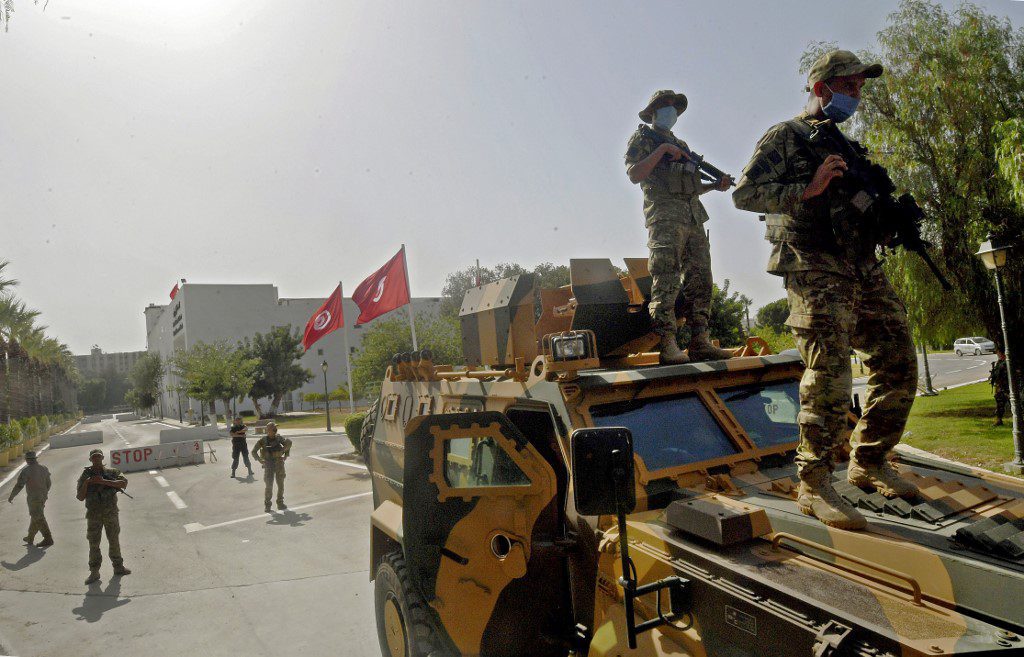
Hakim Marzouki
“It is far better to frighten a wolf than to kill it”, a golden rule that is known to all shepherds who have faced tragedy in their herds that were safe before the appearance of the wolf.
Because the threat of force is often more important than force itself, humans have deployed this rule in their wars and employed it for their policies. They do that to win cards without draining physical strength and venturing into a confrontation whose end no one knows.
We may overlook that the wolf is the enemy of the shepherd before being the enemy of the sheep because sheep know with certainty that their fate is the same: someone will eat them after being grilled on the fire or by the wolf’s claws, far from their herd society. Some of them would prefer to satisfy the hunger of their animal species and end up in the stomach of the one who is more deserving of eating it without being touched by fire or presented to the tables of the carnivore gentlemen.
The frail, sick, old, and infertile sheep does not worry whether it’s flayed or slaughtered. Instead, it is often pleased when the wolf surprises the shepherd so that the latter does not offer it as a gift, instead of preying on the small milky sheep with soft meat. Then it lives and bleats with its flock in the extra time.
We forgot to mention that not all of the shepherds are necessarily responsible for their “flock.” Some of them are inexperienced, negligent, dependent, reckless, and even some conspire with the wolf to reduce the gravity of the responsibility and relieve their minds from thinking about the community affairs.
Providing fertile pasture, ensuring a safe resource, and providing a shady place, is not an easy matter for those who have been faithful to the grazing stick and loved their cattle, so they walked with them to the pasture places, feeling safe and at peace, as they sway to the flute of their master.
And because the profession of shepherding was attached to the lives of the messengers and prophets due to its sincerity, trustworthiness, and unity with the nature that glorifies the name of its creator, the matter became confusing for “Professor” Rachid Ghannouchi, leader of the Islamic Ennahda Movement, which ruled Tunisia. He was the one who addressed his supporters one Ramadan night in the Kasbah Square, saying: “This gathering is tantamount to the conquest of Mecca, which the Prophet (peace be upon him) purified of impurity and idols”.
Yes, just like that. Without a rhetorical equivocation or a metaphor, Ghannouchi compares himself to the Prophet Muhammad and equals his supporters to The Ansar. Then, who was left out in this incident that slapped people and shook the entity of the simple faithful Tunisian citizen at the time?
If what happened parallels the conquest of Mecca, as Ghannouchi thinks, who would then be the polytheists of Quraysh?
Why would they declare “holy war” if they lost power through elections or according to the constitution and consider their rule sacred if they came to power?
Who is the shepherd, and who is the wolf? Out of respect, we have to deem the flock above the herd for its humanity. They have their privacy in the necessity of differentiating between lambs, ewes, and rams, and what they may have in terms of colour, sound, method of protest, uniqueness, and confrontation of the wolf.
Who is the wolf that deprived us of sleep before July 25 2021, that is, before the decisions of Qais Saeed, which Islamists call a coup against the constitution? There are inevitably many terminologies for one danger, the first is the deterioration of living conditions, and the last is the insecurity and lack of social peace.
To sum it up, disciplining and deterring the wolves of destruction is much better than killing or imprisoning them. That is what all jurists advise the Tunisian president before the Islamists become heroes before he slips towards the dictatorship that they push him towards in front of international public opinion, as they always do.
DISCLAIMER
The opinions expressed in this publication are those of our bloggers. They do not purport to reflect the opinions or views of Fanack or its Board of Editors.


